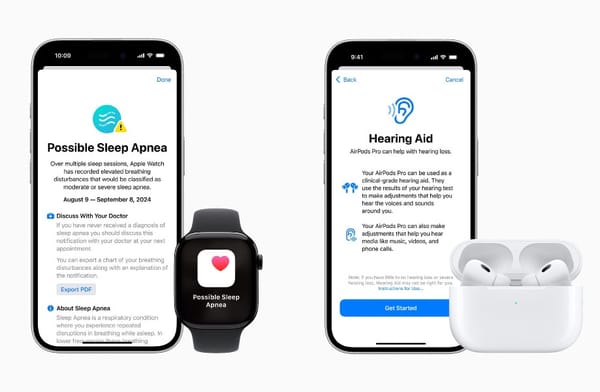As we enter the autumn of 2024, the healthcare landscape is evolving rapidly, with personalized medicine emerging as a game-changing trend. This approach tailors medical treatments to individual patients based on their unique genetic, environmental, and lifestyle factors. For the average American, this means more effective and efficient healthcare that's customized to their specific needs.
Key Takeaways:
- Personalized medicine is gaining traction due to patient demand for better, more adaptable care.
- Advancements in technology and data analysis are driving the growth of personalized treatments.
- The personalized medicine market is projected to grow significantly in the coming years.
- This trend offers opportunities for healthcare providers, investors, and patients alike.
- Challenges such as data management and privacy concerns need to be addressed.
In recent years, the healthcare industry has undergone significant changes, with personalized medicine emerging as a promising trend that's set to revolutionize patient care in 2024 and beyond. This innovative approach moves away from the traditional one-size-fits-all model of healthcare, instead focusing on tailoring treatments to each individual's unique characteristics and needs[2].
Why Personalized Medicine is Gaining Momentum
The growing popularity of personalized medicine can be attributed to several factors. First and foremost, patients are increasingly dissatisfied with traditional healthcare models that often fail to address their specific needs. Long wait times, high costs, and impersonal care have left many Americans seeking alternatives that offer more personalized attention and better outcomes[2].
Additionally, advancements in technology have made it possible to gather and analyze vast amounts of patient data, including genetic information, lifestyle factors, and environmental influences. This wealth of information allows healthcare providers to develop more targeted and effective treatment plans for each individual[1].
The Impact on Patient Care
For the average American, personalized medicine offers several potential benefits:
- More effective treatments: By considering a patient's unique genetic makeup and other individual factors, doctors can prescribe medications and therapies that are more likely to be effective and have fewer side effects[1].
- Improved preventive care: Personalized medicine can help identify individuals at higher risk for certain diseases, allowing for earlier interventions and preventive measures[4].
- Better management of chronic conditions: Tailored treatment plans can lead to more effective management of ongoing health issues, improving quality of life for patients with chronic diseases[2].
- Increased patient engagement: As patients become more involved in their own healthcare decisions, they're likely to be more committed to following treatment plans and making lifestyle changes[2].
The Business Opportunity
The personalized medicine market is poised for significant growth in the coming years. According to market projections, the global personalized medicine market is expected to reach $796.8 billion by 2028, with a compound annual growth rate (CAGR) of 6.2% from 2021 to 2028[1].
This growth presents numerous opportunities for healthcare providers, pharmaceutical companies, and investors. Some areas of potential development include:
- Genetic testing and analysis: Companies that offer genetic testing services and develop tools for interpreting genetic data are likely to see increased demand[1].
- Targeted drug development: Pharmaceutical companies can focus on developing medications tailored to specific genetic profiles, potentially leading to more effective treatments and fewer side effects[1].
- Digital health technologies: Wearable devices and health-tracking apps that collect and analyze patient data can play a crucial role in personalized medicine[2].
- Data management and analysis: As the amount of patient data grows, there will be a need for advanced data management and analysis tools to help healthcare providers make sense of this information[2].
Challenges and Considerations
While personalized medicine offers exciting possibilities, there are also challenges that need to be addressed:
- Data privacy and security: As more personal health information is collected and analyzed, ensuring the privacy and security of this sensitive data becomes increasingly important[2].
- Cost and accessibility: Some personalized treatments may be expensive, potentially limiting access for certain populations. Finding ways to make these treatments more affordable and accessible will be crucial[4].
- Healthcare system adaptation: Implementing personalized medicine approaches may require significant changes to existing healthcare systems and workflows[4].
- Education and training: Healthcare providers will need ongoing education and training to effectively utilize personalized medicine approaches in their practice[4].
The Role of Technology in Personalized Medicine
Advancements in technology are playing a crucial role in driving the personalized medicine trend. Some key technological developments include:
- Artificial Intelligence (AI) and Machine Learning: These technologies can analyze vast amounts of patient data to identify patterns and predict health outcomes, helping healthcare providers make more informed decisions[4].
- Genomic sequencing: Faster and more affordable genomic sequencing technologies allow for a deeper understanding of an individual's genetic makeup and its impact on health[1].
- Wearable devices and remote monitoring: These tools can collect real-time health data, providing valuable insights into a patient's daily health patterns and enabling more personalized care[2].
- Electronic Health Records (EHRs): Improved EHR systems can help integrate and analyze diverse types of patient data, supporting more comprehensive and personalized care plans[4].
The Future of Personalized Medicine
As we look ahead to 2024 and beyond, personalized medicine is poised to become an increasingly important part of healthcare. This approach has the potential to improve patient outcomes, reduce healthcare costs, and enhance the overall quality of care.
For the average American, this means a future where healthcare is more tailored to their individual needs, with treatments that are more effective and have fewer side effects. It also means taking a more active role in their own health, with access to more information and tools to make informed decisions about their care.
As this trend continues to evolve, it's clear that personalized medicine will play a significant role in shaping the future of healthcare. By staying informed about these developments, patients can be better prepared to take advantage of the benefits that personalized medicine has to offer.
In conclusion, personalized medicine represents a exciting shift in how we approach healthcare. As we move into 2024, this trend is one to watch closely, offering the promise of more effective, efficient, and patient-centered care for all Americans.
Citations:
[1] https://www.linkedin.com/pulse/personalized-medicine-market-business-intellect-report
[4] https://translational-medicine.biomedcentral.com/articles/10.1186/s12967-020-02316-w
[5] https://nortal.com/insights/personalized-healthcare-the-future-of-medicine/














Member discussion